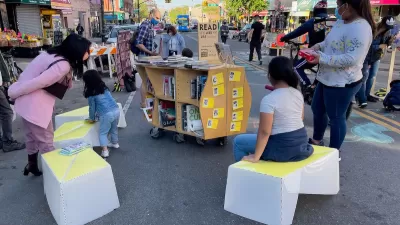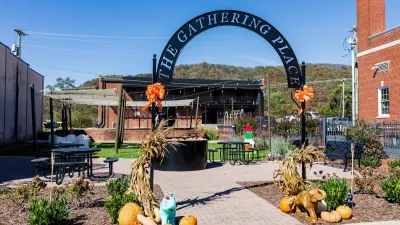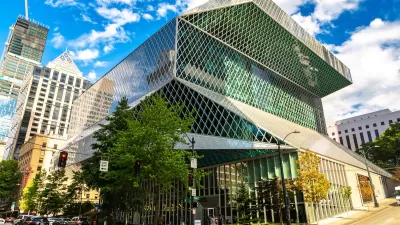Technology companies are increasing their presence in cities, adopting the language of planners, and seeking to create communities. Yet, according to Allison Arieff, the sector does a uniformly poor job of contributing to urban vitality.
With their young work forces, entrepreneurial ethos, and "embrace of urbanist lingua franca", tech companies are much sough-after tenants in cities across the United States. But, as their interaction with the wider community in San Francisco illustrates, tech's biggest titans have a lot to learn about how to be good neighbors.
"There’s been no shortage of published laments on the changing nature of San Francisco over the past several weeks, so I’m loath to add another complaint to the list," writes Arieff in an opinion piece for The Times. "And yet … I keep coming across instances where the tech sector flocks to the city and talks of community yet isolates itself from the urban experience it presumably couldn’t wait to be a part of."
She points to several instances, in San Francisco and at suburban campuses in Silicon Valley, where tech companies have created vital "third places" that are off-limits to the general public.
“'Community space' implies something that is open to, well, the community. Subverting of naming conventions to suggest public access and transparency, while providing neither, is troubling and increasingly pervasive. But this turning inward, despite the incessant drumbeat of 'community,' is quickly becoming the rule rather than the exception."
FULL STORY: What Tech Hasn’t Learned From Urban Planning

Alabama: Trump Terminates Settlements for Black Communities Harmed By Raw Sewage
Trump deemed the landmark civil rights agreement “illegal DEI and environmental justice policy.”

Study: Maui’s Plan to Convert Vacation Rentals to Long-Term Housing Could Cause Nearly $1 Billion Economic Loss
The plan would reduce visitor accommodation by 25% resulting in 1,900 jobs lost.

Why Should We Subsidize Public Transportation?
Many public transit agencies face financial stress due to rising costs, declining fare revenue, and declining subsidies. Transit advocates must provide a strong business case for increasing public transit funding.

Paris Bike Boom Leads to Steep Drop in Air Pollution
The French city’s air quality has improved dramatically in the past 20 years, coinciding with a growth in cycling.

Why Housing Costs More to Build in California Than in Texas
Hard costs like labor and materials combined with ‘soft’ costs such as permitting make building in the San Francisco Bay Area almost three times as costly as in Texas cities.

San Diego County Sees a Rise in Urban Coyotes
San Diego County experiences a rise in urban coyotes, as sightings become prevalent throughout its urban neighbourhoods and surrounding areas.
Urban Design for Planners 1: Software Tools
This six-course series explores essential urban design concepts using open source software and equips planners with the tools they need to participate fully in the urban design process.
Planning for Universal Design
Learn the tools for implementing Universal Design in planning regulations.
Smith Gee Studio
Alamo Area Metropolitan Planning Organization
City of Santa Clarita
Institute for Housing and Urban Development Studies (IHS)
City of Grandview
Harvard GSD Executive Education
Toledo-Lucas County Plan Commissions
Salt Lake City
NYU Wagner Graduate School of Public Service





























